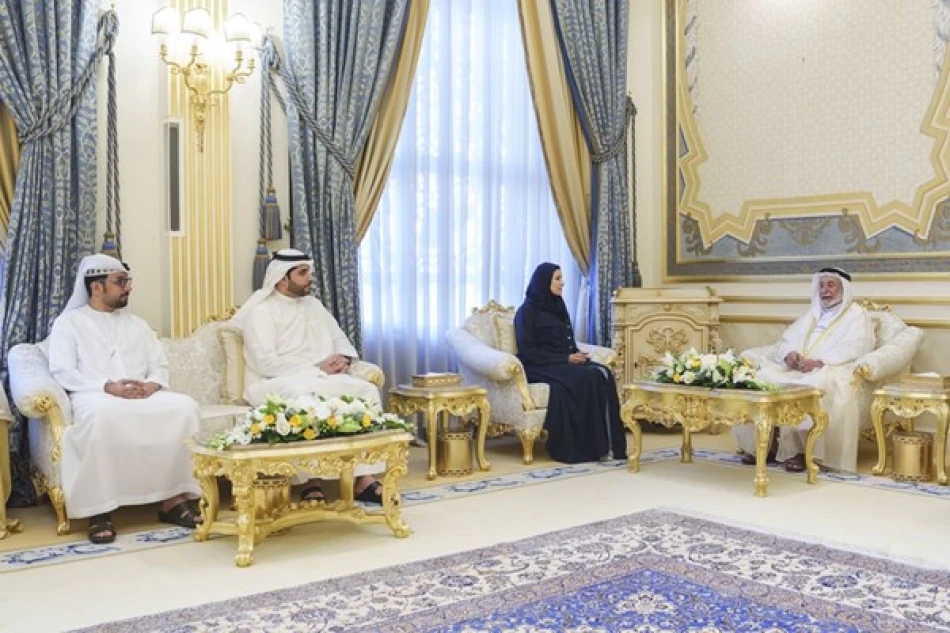
Sharjah Ruler Welcomes UAE Education Minister for High-Level Discussions
Sharjah Ruler Endorses UAE's Vision for World-Class Education System
The UAE's commitment to building a globally competitive education system gained renewed momentum as Sharjah's ruler met with Education Minister Sarah Al Amiri to discuss ambitious plans for the new academic year. The high-level meeting underscored the Emirates' strategy to balance international educational standards with deep-rooted cultural values, positioning the nation as a regional education hub while preserving its Islamic and Arab identity.
Cultural Identity at the Heart of Educational Reform
Sheikh Dr. Sultan bin Mohammed Al Qasimi, Ruler of Sharjah and Supreme Council member, received Education Minister Sarah Al Amiri at Al Badi Palace, where discussions centered on integrating global best practices while maintaining the UAE's cultural foundation. This approach reflects a sophisticated understanding that educational excellence cannot come at the expense of national identity.
The Sharjah ruler emphasized that school education serves as a fundamental tool for preserving values and transmitting them to future generations. This philosophy aligns with broader regional trends where Gulf states are investing heavily in education while resisting wholesale adoption of Western educational models that might dilute local traditions.
Infrastructure and Technology Drive Quality Improvements
Comprehensive Modernization Plans
The Ministry of Education's roadmap for the new academic year encompasses sweeping reforms across multiple dimensions. Key initiatives include infrastructure upgrades, teaching methodology improvements, and integration of cutting-edge technologies designed to elevate student performance across all educational levels.
The focus on continuous teacher support and capacity building represents a critical recognition that educational transformation depends fundamentally on human capital. This mirrors successful education reform models in Singapore and Finland, where teacher development receives priority attention and substantial investment.
School-Centered Development Strategy
New initiatives launched at the academic year's start position schools as central pillars in student character development. This holistic approach goes beyond academic achievement to encompass personal growth, leadership skills, and civic responsibility – elements increasingly valued by international universities and global employers.
Regional Leadership Ambitions Take Shape
The UAE's educational strategy reflects broader economic diversification goals, with the nation positioning itself as a knowledge economy leader. Minister Al Amiri's emphasis on equipping students with future-ready knowledge and skills directly supports the country's strategic vision of reducing oil dependency and building competitive advantages in technology, finance, and innovation sectors.
Collaborative Governance Model
The Ministry's ongoing cooperation with various local and federal entities demonstrates the UAE's systematic approach to policy implementation. This coordination mechanism helps ensure that educational reforms align with broader national development objectives, from Vision 2071's long-term planning to immediate economic diversification needs.
Global Competitiveness Through Local Values
The UAE's educational philosophy represents a nuanced response to globalization pressures. Rather than choosing between international standards and cultural authenticity, the Emirates is crafting a hybrid model that could serve as a template for other developing nations facing similar challenges.
This balanced approach may prove particularly attractive to international families seeking quality education within a culturally rich environment, potentially strengthening the UAE's position as a regional education destination and supporting its broader goals of attracting global talent and investment.
Most Viewed News

 Layla Al Mansoori
Layla Al Mansoori






